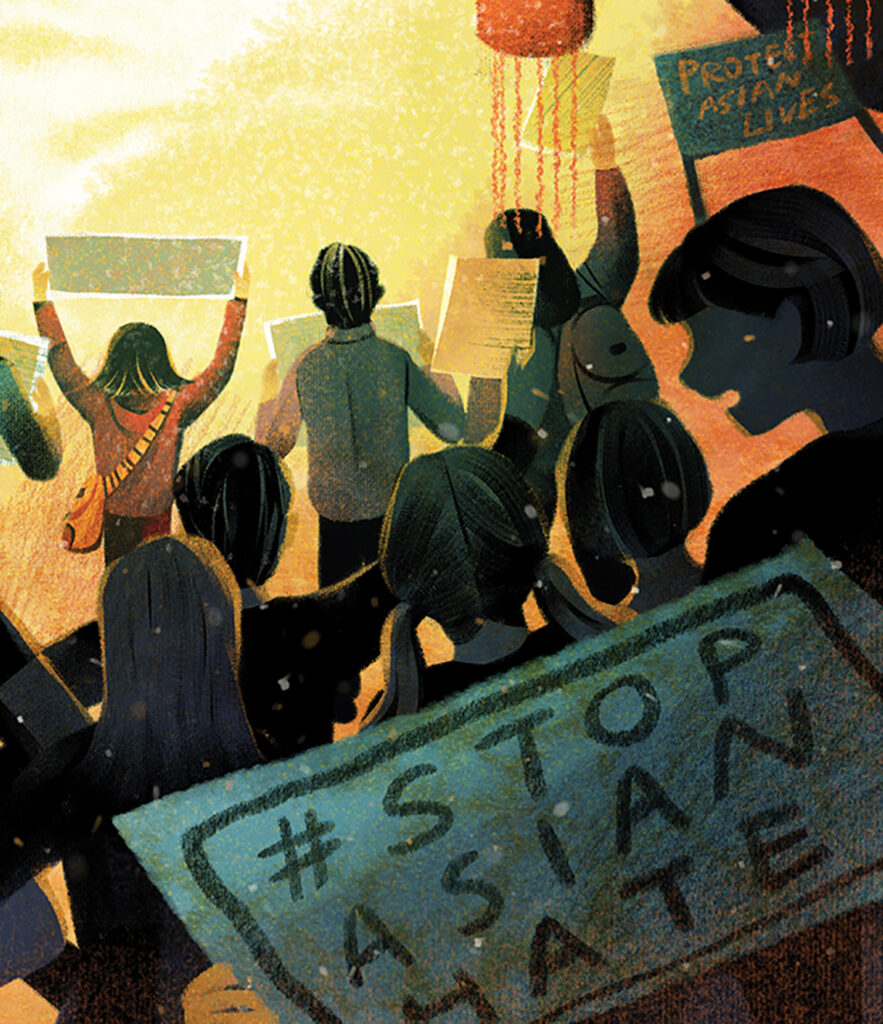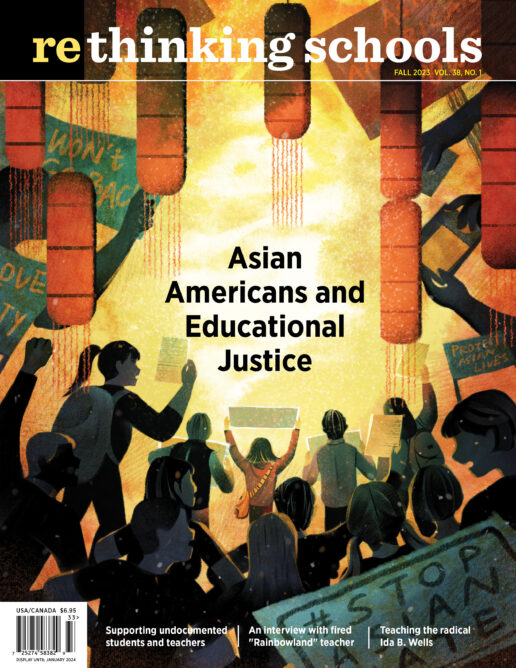Letter to My Asian American Students
Illustrator: Jasu Hu

Good morning! As you may have heard, this month is Asian Pacific American Heritage Month. “What is that?” you may ask. Well, to be honest, as your teacher who also happens to be Asian American, I don’t really know.
I do know that every year around this time companies like Amazon try to sell me products by bombarding me with ads proclaiming how much they support the APA community. Whenever I open Netflix or Disney Plus a list of suggestions appear with movies and TV shows that “celebrate Asian American stories.”
It all sounds nice, and I guess I should be happy. But I don’t really know what these corporate gestures mean, and I’m not surprised if you don’t either.
All month long you are told that you are being seen. But I wonder, what exactly do they see?
All month long, you are told that your voices are being listened to. But I wonder, to what extent are you being heard?
What do I see? I see a community that is so diverse in terms of ethnicity, class, culture, and gender. I don’t see how one month can contain us.
What do I hear? I hear stories so varied and beautiful that, as the title of the movie Everything Everywhere All at Once suggests, not even a multiverse can contain us.
But this is what I also see and hear: how broken we are.
As someone who also identifies as Asian American, I don’t just see and hear it. I feel it.
I saw how in March 2020, when the world shut down, our community had already shut down. I saw and felt the pain of your parents when they closed the Asian restaurants in your neighborhood early because customers were too afraid to eat there. These customers feared catching what some politicians called the “Kung Flu,” and your parents wanted to get home before dark to avoid being harassed. I saw and felt your pain as other kids avoided you on the subway on the way to school because you were wearing a mask that you thought would keep you safe, but instead marked you as a target.
And I saw and felt for you during that horrible 2020–21 school year when we were all at home trying to learn on Zoom. I saw how you were often the first student in my class to turn your camera off because you were too embarrassed to show the other students what your tiny room looked like, and because you were the only one in your family who could help your little brother sitting next to you figure out how to use his Chromebook, so his 1st-grade teacher wouldn’t mark him absent.
But even more, I saw how, even after pandemic restrictions began easing up during the spring of 2021, things did not open up for you. I still feel terrible about coming up with that end-of-the-year project — the one where I told you to go out and take pictures in your neighborhood. I thought it would be freeing, until several of you told me that you were too scared to leave your house. Or your parents were too scared to let you leave.
And I felt even more terrible when, later that summer, you ventured out to the playground where you would hang with your friends — the same playground your grandparents and the other elders would go to on warm summer nights and dance together — only to find that unlike all the other playgrounds in the city, your playground was empty. And every time you went back to that playground, as 2021 faded into 2022, the playground stayed empty.
And I saw and felt how awful it was when, during the next school year, you decided to brave that same subway and go back to school, only to be faced with violence from other kids who, like you, were also made broken by this pandemic.
And so while I can’t give you a definitive explanation of what Asian Pacific American Heritage Month is, I can offer this: If there is something I wish for this Asian Pacific American Heritage Month, it is that not only are you seen and heard, but that your presence is felt. Because your presence has been missed.
And if there are stories that are told about you, I want those stories to make you proud to be seen, not afraid of how you are seen. I don’t want you to have to relive the traumas that we have gone through together or feel like you have to explain those traumas to others. I know they say you should “tell your story,” but you have the right to decide if, when, and how your stories are told. And if you decide you want to tell them, you have the right to pause and take a breath before you speak.
I want you to love and be loved. I want you to feel joy.
And when you are ready, I want you to celebrate.

